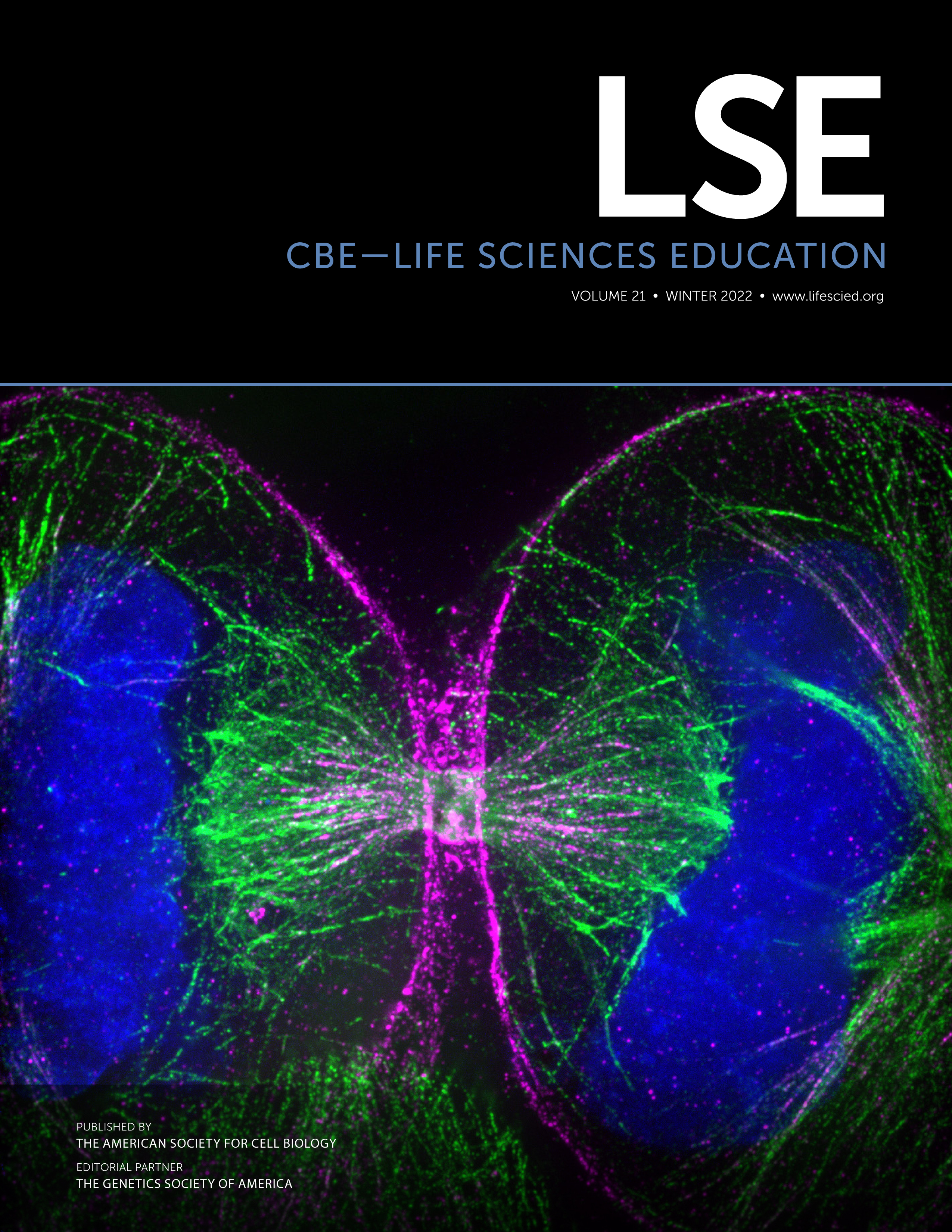Increased Pass Rates in Introductory Biology: Benefits and Potential Costs of Implementing a Mathematics Prerequisite in a Community College Setting
Abstract
We explored the impacts of a mathematics prerequisite on student success in Introductory Biology, focusing on students historically underserved in science, technology, engineering, and mathematics (STEM). Specifically, we studied Introductory Biology student outcomes 5 years before and 6 years after adding the prerequisite. Students who had not previously passed Intermediate Algebra had a 54.91% chance of passing Introductory Biology, compared with a 69.25% chance for students who had passed this math course. Furthermore, we found a disproportionate benefit of passing the math course for Pell Grant recipients. When considering pre- versus post-prerequisite terms of Introductory Biology, we found pass rates were significantly higher after the mathematics prerequisite was required, but grades were not. After the mathematics prerequisite, enrollments in Introductory Biology temporarily decreased in comparison to a similar chemistry course and the college’s overall enrollments, a potential cost to students. Pell Grant recipients and women took Introductory Biology at the same rate as before, and contrary to our hypothesis, we saw the proportion of persons excluded due to ethnicity or race (PEER) students enrolled in Introductory Biology was higher after the implementation. This study provides a model for assessing prerequisites in a local context and contributes evidence that mathematical prerequisites can benefit students.



